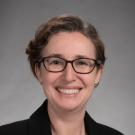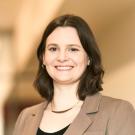Congratulations to the investigators who were awarded 2024-2025 Developmental Project Grants of the UW MBWC’s Alzheimer’s Disease Research Center. These projects will use ADRC resources and participant data in studies on the cutting edge of research into Alzheimer’s and related dementias.

Gregory J. del Zoppo, MD, MS,
Gregory J. del Zoppo, MD, MS, Professor of Medicine, UW Neuropathology Division
In the brain, Alzheimer’s disease is often accompanied by changes in the blood vessels that supply the central nervous system with oxygen and nutrients. Gregory J. del Zoppo, MD, MS will collaborate with the ADRC to explore how changes in proteins involved in blood clotting, such as thrombin, relate to Alzheimer’s disease and blood vessel pathology in the brain. The findings may shed light on the phenomenon of resilience to Alzheimer’s disease, which is a property of the brain that allows for cognitive ability that is better than expected given the degree of disease pathology. The team will determine whether reduced levels of blood clotting proteins are associated with resilience. These findings may ultimately lead to therapeutic interventions for Alzheimer’s disease.

Jeanne Gallée, PhD, CCC-SLP,
Jeanne Gallée, PhD, CCC-SLP, Postdoctoral Scholar, Center for Psychometric Analyses of Aging and Neurodegeneration, UW School of Medicine
Primary progressive aphasia (PPA) is a rare neurodegenerative condition that affects language and speech skills such as naming objects, finding words, or pronouncing words. Through strengths-based approaches, such as speech-language therapy, people living with PPA can learn ways to compensate and better express their needs and feelings in day-to-day life. However, there are no strengths-based tools available that were developed specifically for people living with PPA. Jeanne Gallée, PhD, CCC-SLP is working to enrich the quality of clinical care for PPA. She will analyze speech and language data from ADRC research participants, to establish the first tool for assessing basic communication skills in people living with PPA. This project could ultimately provide the basis for strengths-based PPA clinical interventions and clinician education.

Nicole Liachko, PhD
Nicole Liachko, PhD, Assistant Professor of Medicine, UW Division of Gerontology and Geriatric Medicine
Accumulations of abnormal TDP-43 proteins are the hallmark brain pathology of amyotrophic lateral sclerosis (ALS) and half of frontotemporal lobar degeneration (FTLD) cases. In collaboration with the ADRC Neuropathology Core, Nicole Liachko, PhD will study donated brain tissue from cases of these neurodegenerative diseases. Her project will explore the molecular changes in TDP-43 biology that are responsible for accumulation of pathological TDP43. Liachko will evaluate how these changes vary between FTLD and ALS in terms of the brain regions and cell types most affected. The project aims to define what brain regions are vulnerable to TDP43 accumulation and those that can resist the accumulation, which is critical to the design of neuroprotective strategies.

Briana Meyer, PhD
Briana Meyer, PhD, Postdoctoral Scholar, UW Department of Radiology
The blood-brain barrier protects the brain by allowing essential nutrients into the brain and preventing the entry of toxins circulating in the bloodstream. Research has shown that the blood brain barrier becomes more permeable, or leaky, in both cerebrovascular disease and Alzheimer's disease. Briana Meyer, PhD will use advanced brain imaging methods to establish markers of blood-brain barrier dysfunction, which will provide ways to detect and monitor this early stage of disease. The team will collaborate with the ADRC Clinical Core and the Outreach, Recruitment, and Engagement Core to ensure the inclusion of diverse participants. This effort will allow the team to explore cardiovascular disease and blood brain barrier permeability in population demographic that are underrepresented in clinical research.





